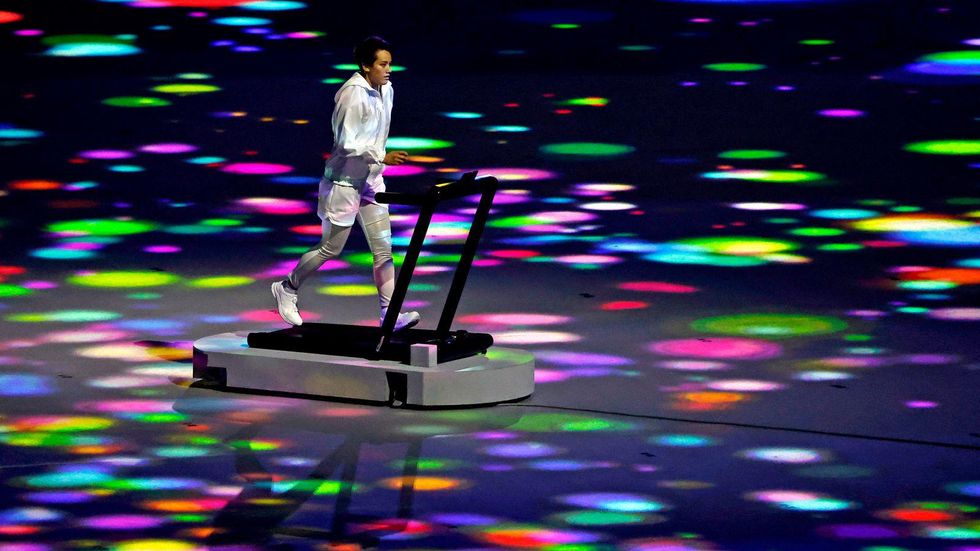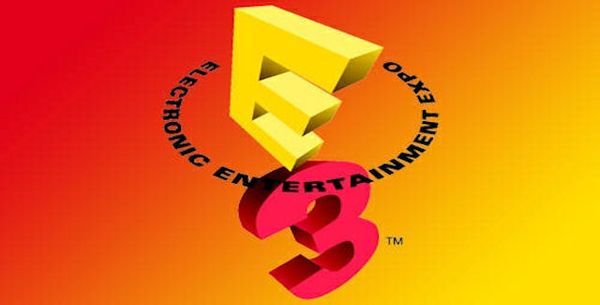Before the Opening Ceremony, I was pumped to watch the beginning of the most exciting and colorful sport event in the world: the Olympics.
I may be blunt for saying this, but the Olympics was, and still is, the only sports event I truly care about. The Tokyo 2020 Olympics in particular, has been long-awaited, and I was dying to see every bit of it live, so I can write an article about the highlights of the Opening Ceremony. From the poignant, emotional performance of athletes working out separately during the pandemic that threw all plans and certainties out the window, to the fireworks and flying drones forming the shape of the globe, to the breakneck speed of the bright and glittering montage of the city lights in the host city of Tokyo itself, there are definitely A LOT of highlights for me to cover. That I still do want to cover.
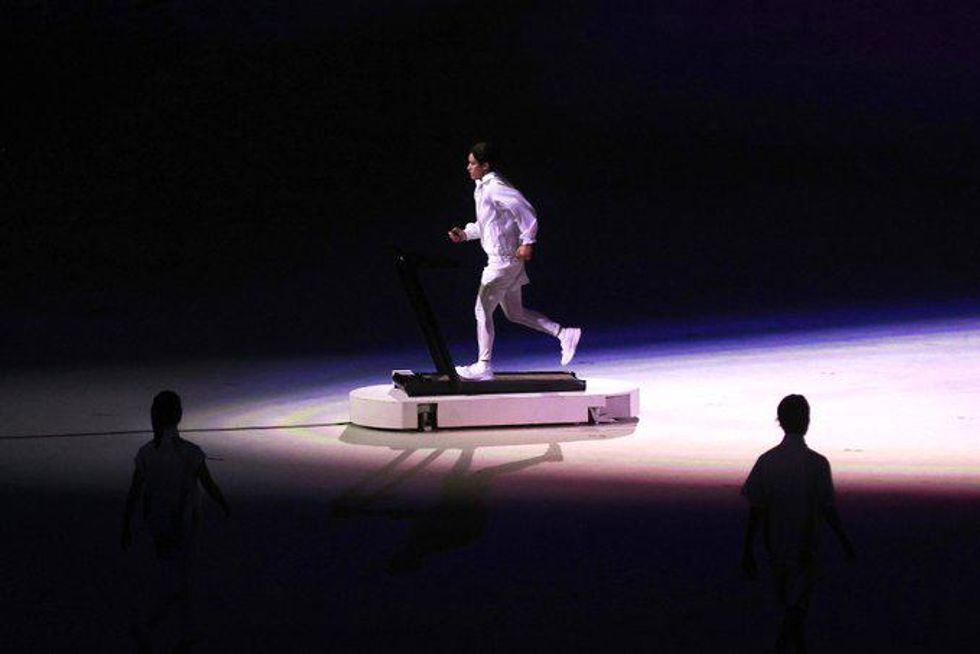
However, I realized that to simply talk about the highlights of the Opening Ceremony would be a disservice to the people who never got to watch the Opening Ceremony completely, or at all. Thus, in this article, I will tell my story of my experience watching the Opening Ceremony, and how it nearly ruined the Olympics for me, and for many other Americans on July 23rd. Then, I will tell the facts that will explain what was happening, and how it privileges some people over others.
In the morning of the Opening Ceremony, at 6:40 am EST, I got up from bed, and opened my laptop. The night before, I emailed myself the link in the NBC Sports website, just so I can start watching it. I woke my sister up as well, so she won't miss out. To me, I felt like I had everything. What was there to worry about?
However, when I got to the link, I noticed something that will change the way I saw the Opening Ceremony (both literally, and emotionally).
The words "Temporary Pass", and the timer ticking the seconds away above the video, before the Ceremony even started: 29:59, 29:58, 29:57...
For a three-hour event, I only got less than 30 minutes on this website to watch it freely. After that, I would have to log in to my TV provider (think RCN and Spectrum), in order to watch the whole event unfold undisturbed.
I panicked. To save money, I cut off my cable off my monthly Spectrum bill last January (oddly enough, the day I cut off my cable was the same day the Capitol riots happened, but that's another story to tell).
The important fact was, the day when I needed my TV the most, I didn't have the resource to it. I couldn't simply turn it on and watch it at a certain channel like everyone else gets to do.
Clearly, according to NBC Sports, if I wanted to watch the Opening Ceremony online like a normal person at 2021, I would need to have access to a TV first. Which completely destroys the purpose of watching online in the first place.
Because why the screaming hell would I watch online on my laptop, if I can just turn on the TV at 7am EST, and watch the Olympics there??????
This is so stupid. I thought as I tried to do something about my rather anticlimactic situation here. The way this whole thing was set up seems to privilege people who could afford to keep their cable, and who actually prefers to keep using cable, while others are more prone to watching online, and thus using the TV far less than their luckier counterparts.
With only a few minutes left until the live streaming began, I went to Youtube, and tried to find if there were any other live streaming videos for the Opening Ceremony. I saw one, but all it showed were the fans gathering outside the stadium, with some police officers guiding them and moving them along. The camera view showed the stadium where the Opening Ceremony is taking place, outside, unable to come in.
The other videos showed little to nothing, and had even less luck than that.
Suddenly, the information I gathered from the Internet of where I can watch the Opening Ceremony online became undeniably transparent: NBC Sports was the only channel given access to the inside to show the event inside the stadium in Tokyo. No other American channel got the chance, and now, it was the only website and channel that I had to rely on.
With the rather disquieting information in my head, I watched the Opening Ceremony.
For the most part, the start was beautiful, as the Ceremony acknowledged the struggles the athletes had gone through, working out alone in their rooms for an event they trained for, and had to continue training for a year longer. The first performance, "Apart, but not Alone" showed three different athletes, each facing a different direction, working out under a soft white spotlight that connected them together. With the addition of dancers holding red string, and a starburst of color, sparkles, and light, the performance showed that the athletes who put their body and soul, mind and sinew, into the sports they loved doing, are all part of the beating heart of the Olympic Games.
Which would have been much easier for me to enjoy and to deeply appreciate, if I wasn't far too well aware of the extremely limited time I had to watch this before I had to switch to a different device.
Which was what my sister and I did for the next few hours. Every time the temporary pass expired, we would go on a new device and try to pick up from there. I went from my new indigo laptop, to my old white laptop, to my phone, to my sister's phone, etc. When that resource dried up, we downloaded the NBC Sports app in order to keep watching the Opening Ceremony, not wanting to miss out on a single thing. I didn't want to miss my potential highlights for my article. My sister did not want to miss the lighting of the Olympic Torch.
At some point, I tried to get me and my sister more time by opening an account for Peacock TV in order to watch the Ceremony without any temporary passes to worry about. Unfortunately, the event was only for those who had "Premium Access".
I just LOVE sports gatekeeping. Do you?
Did that mean that my sister and I never got to enjoy the Opening Ceremony? Of course not! We got to see the performance of Japanese dancers performing on top of sets made from the wood that came from the different trees grown from the seeds left behind from the Olympian athletes during the 1964 Olympics at Tokyo (loved the coming-at-full-circle theme they got there!). We got to see the Olympics acknowledge with a moment of silence the 1972 murder of the Israeli athletes and coaches at the Munich Olympic games. I totally jammed during the Kabuki performance accompanied by jazz pianist Hiromi. Before that, was my favorite part of the Opening Ceremony: a video montage of a guy turning on the city lights of Tokyo, as the scenes moved and glowed relentlessly, despite my racing efforts to screenshot the best views of Tokyo city, only for a better shot to come right after!
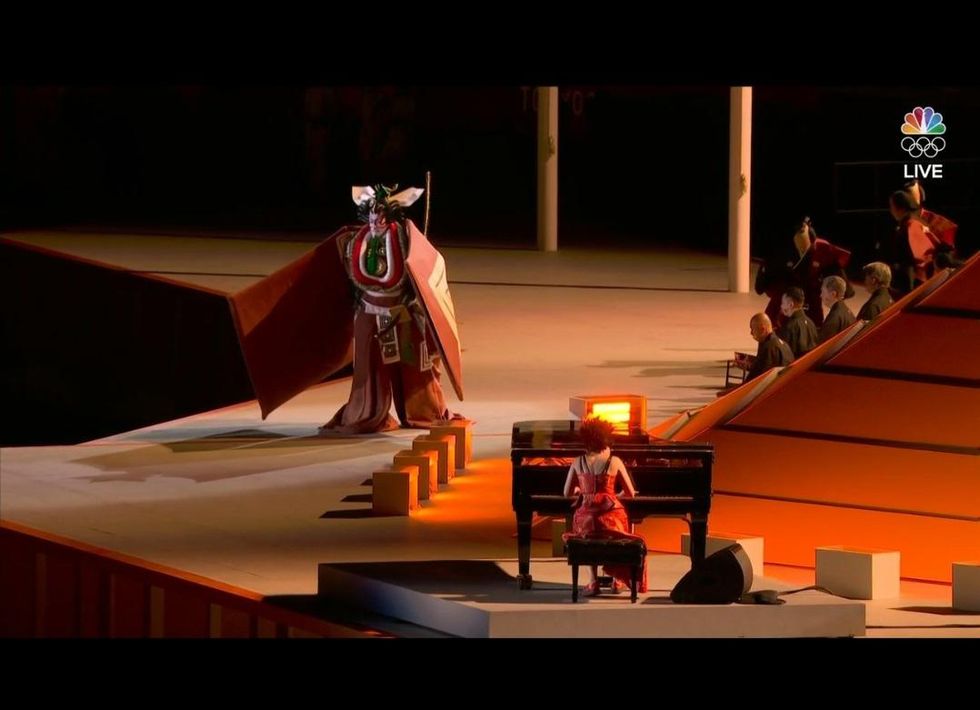
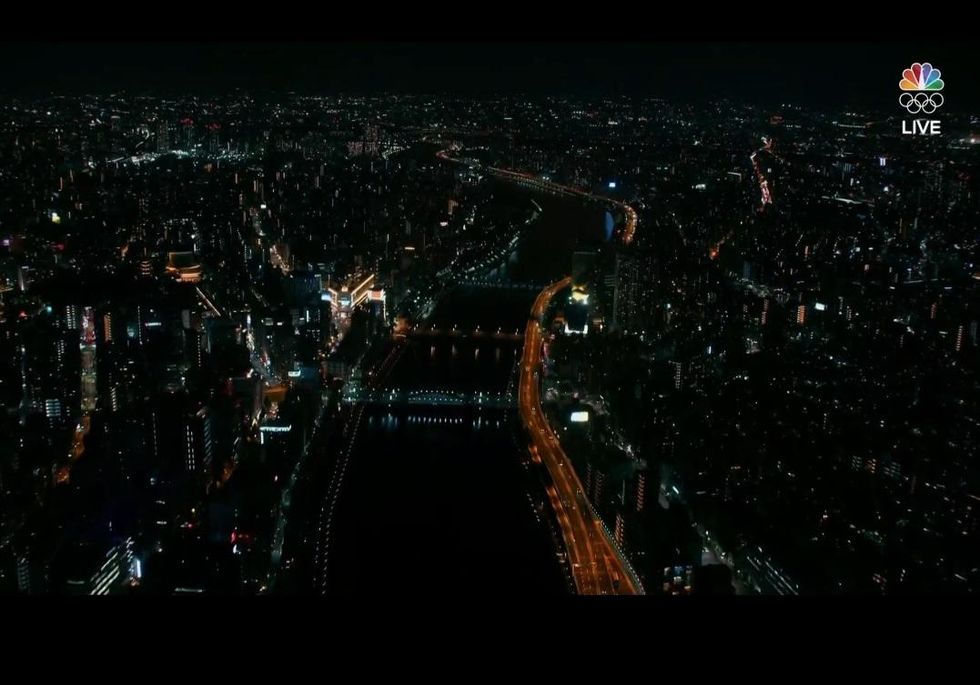
I even got to see this section where the pictograms of each Olympic sport was being featured and celebrated, since the concept of pictograms themselves were invented in Tokyo during the 1964 games in order to bypass any inevitable language barriers that would come with the Olympics event itself. At the end, I agreed with the commentators that their performance was an "Olympic sport" in and of itself!
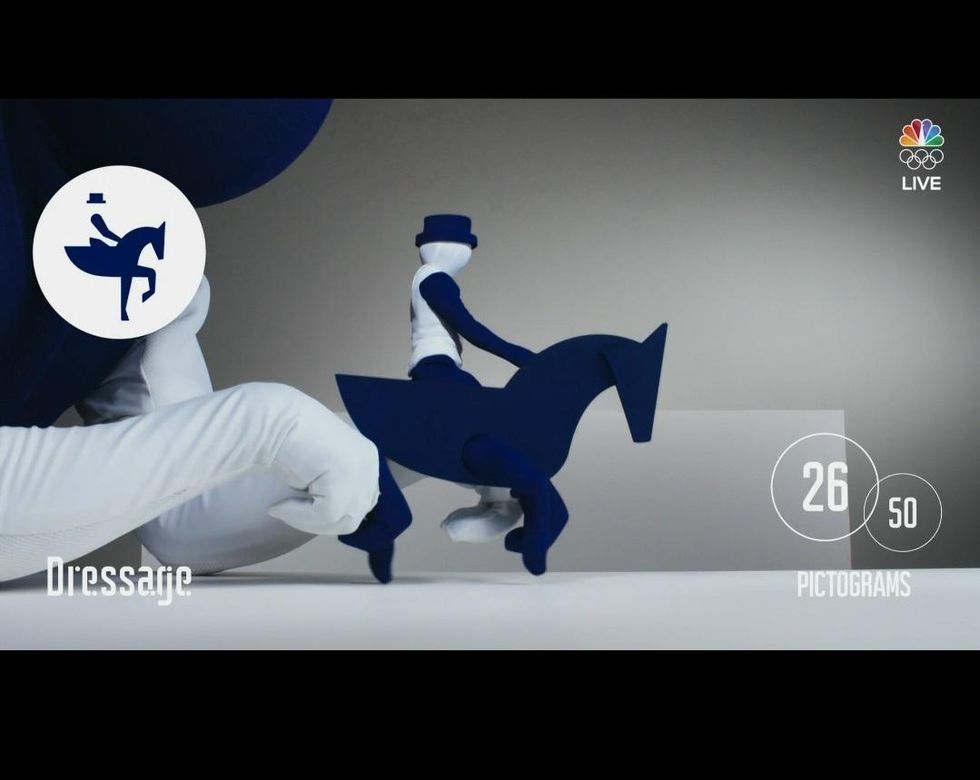
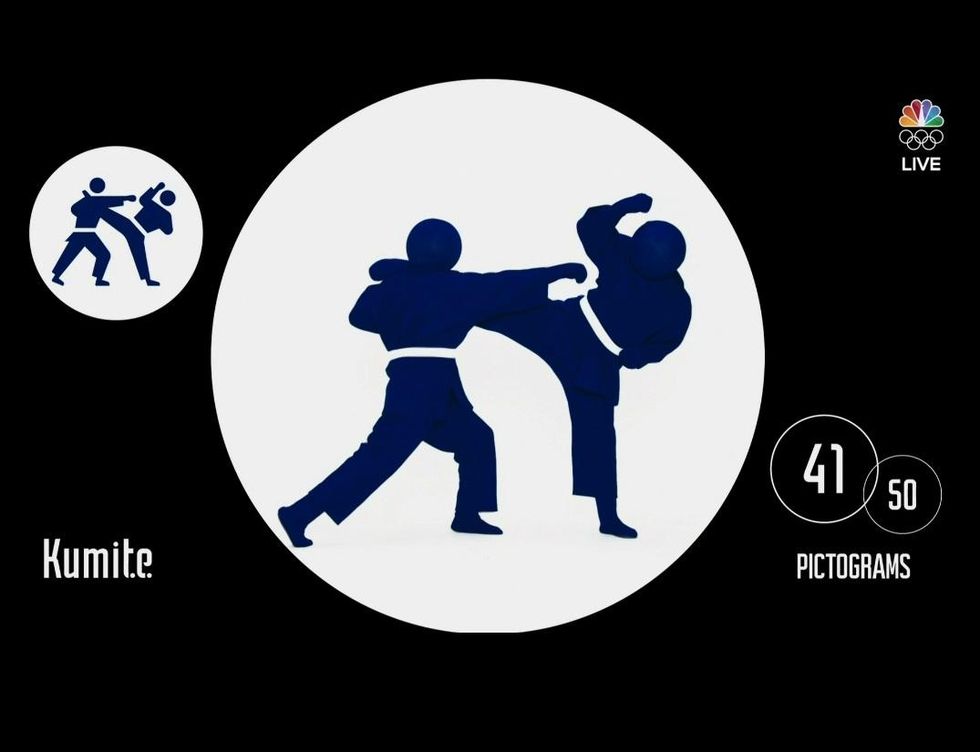
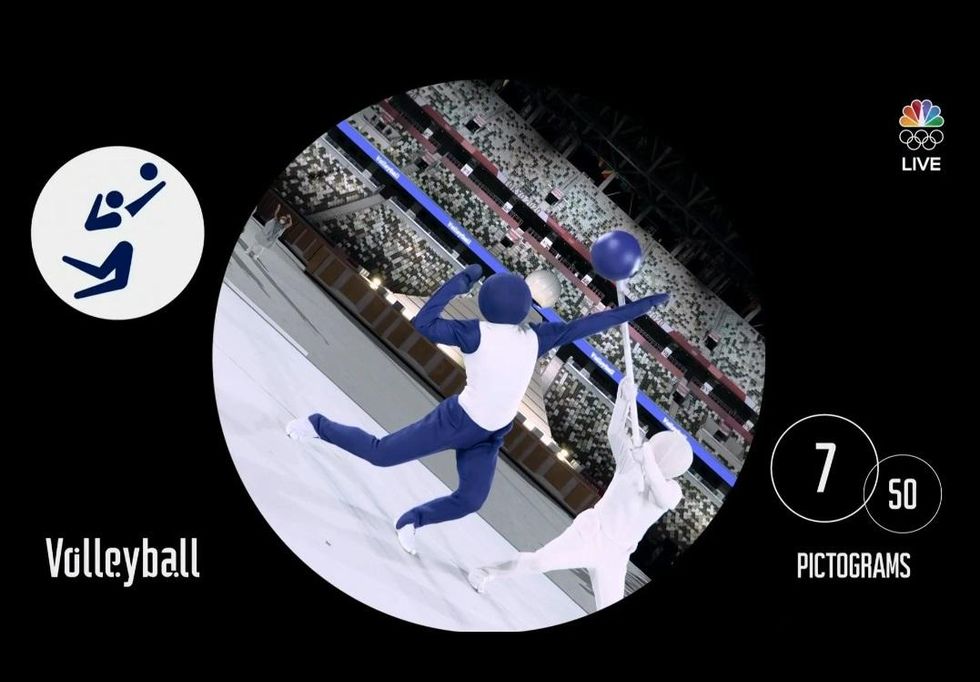
And, at the end of it all, my sister and I actually got to see the lighting of the Olympic torch done by none other than the famed tennis champion and now Olympic athlete, Naomi Osaka, who is half-Japanese herself (thus, making the choice of her doing it all the more special). My sister videotaped the moment, and my reactions, and posted it on Instagram.
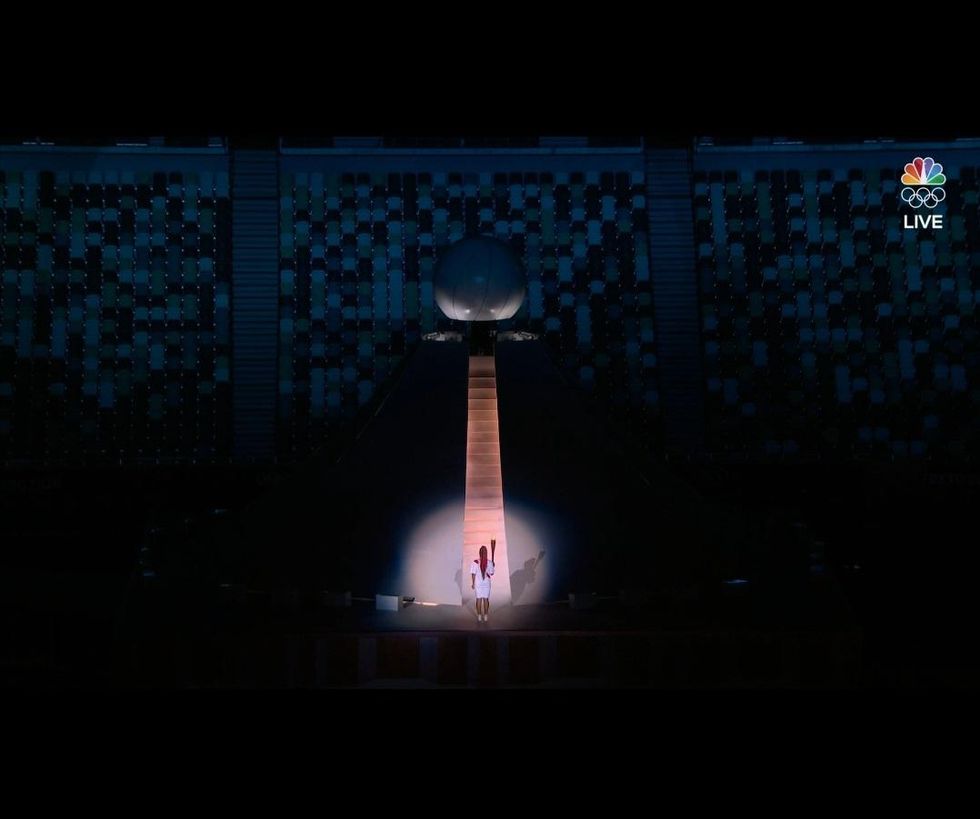
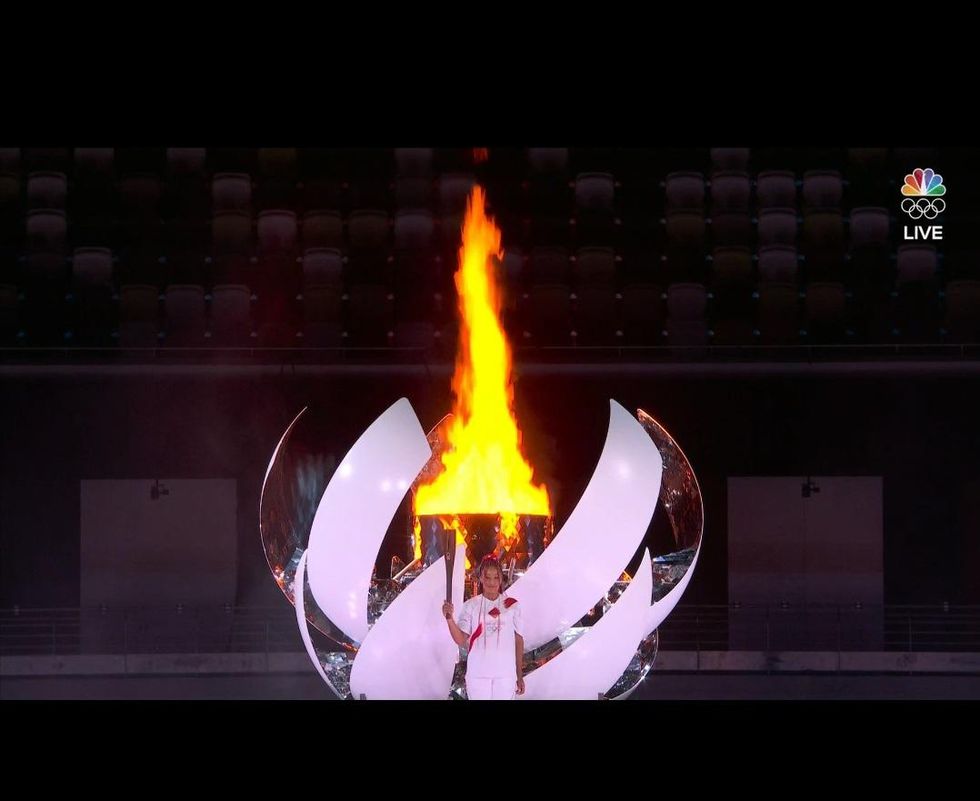
Still, was it worth it?
Was the pure joy of the torch lighting worth the many painful, long minutes beforehand, when we ran out of temporary passes and sat in our kitchen, wondering what to do, and what we were missing out on? Was the chance to unabashedly enjoy the Kabuki performance and the Tokyo montage completely hindered by technical errors such as slow Internet, and our phones turning off at random when left untouched or when we accidentally pushed the wrong button?
It isn't hard to say; No, it wasn't worth the hassle that my sister and I got to go through. Especially when there are simpler, and easier ways to get more people excited and able to see the live event for themselves, instead of solely giving the rights to one cable company. Would my sister and I be able to enjoy it even more if the Opening Ceremony was more open to the public? If it was just live streaming in a YouTube video, the same way Americans would live stream political elections and New Years celebrations?
There was a reason that the Tokyo Opening Ceremony, despite its wonders, got the lowest ratings of any Olympics Opening Ceremony. If the Olympics are to continue to amaze viewers as a worldwide sports phenomenon that boasts of near-superhuman strength, agility, dedication, and focus, then they shouldn't prioritize and privilege those who have access to a cable, and punish those who decide to see the events through a different medium. They should acknowledge that the world is changing in that aspect, and therefore, should be more flexible than a gymnast when it comes to bringing more people equal, free access to the Olympic Games. Thus, letting their virtual cheers echo as loudly, and as strongly, as their in-person cheers in the sport stadiums of the past, and future.


